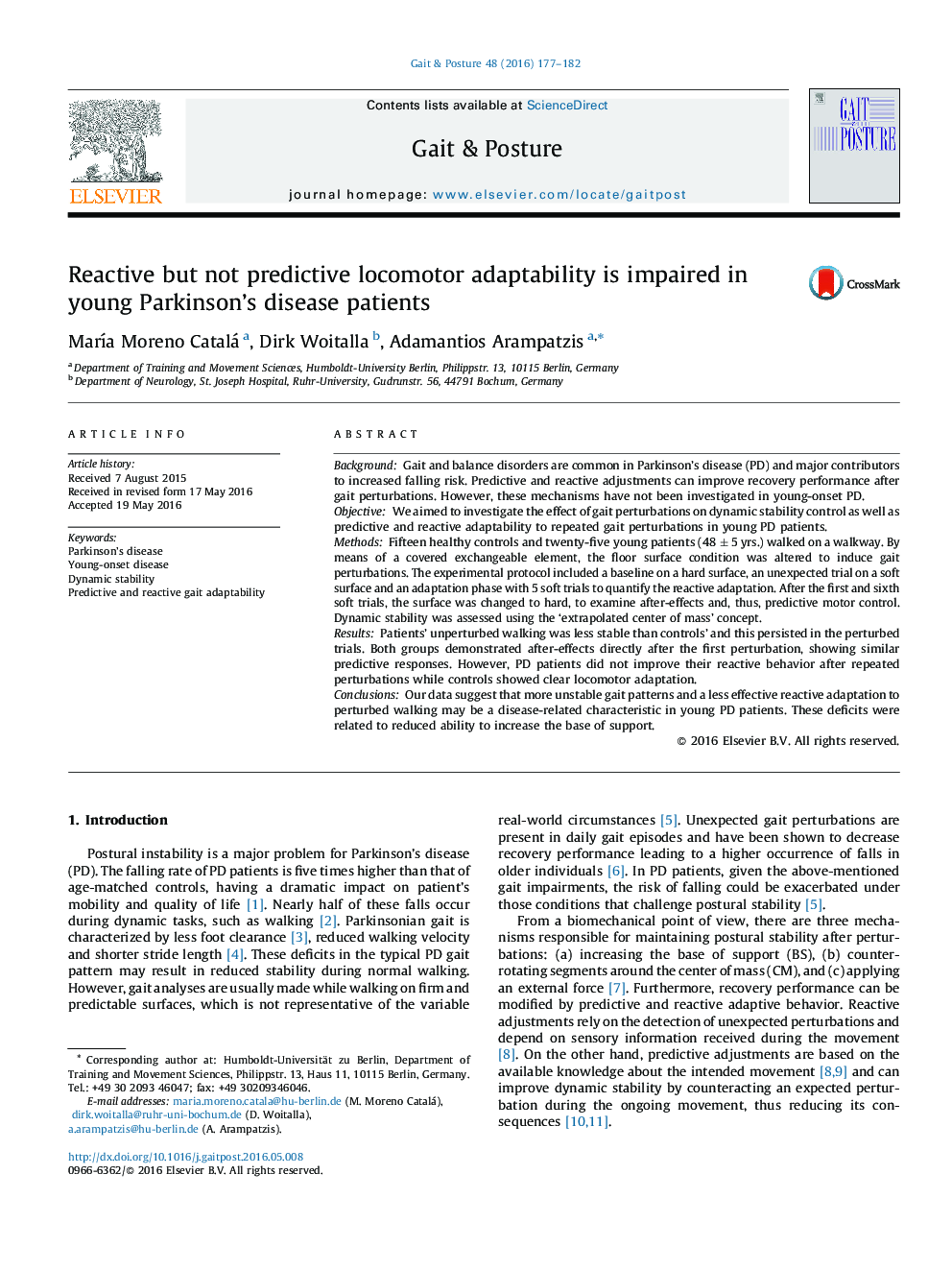| کد مقاله | کد نشریه | سال انتشار | مقاله انگلیسی | نسخه تمام متن |
|---|---|---|---|---|
| 4055795 | 1603847 | 2016 | 6 صفحه PDF | دانلود رایگان |
• Young PD patients show predictive responses to gait perturbations similar to controls.
• PD patients show a more unstable locomotion than controls during unperturbed walking.
• Patients exhibit deficits in the reactive response to unexpected perturbations.
• Adaptability to repeatedly perturbed walking seems to be impaired in young PD.
• This information may help to develop effective interventions to improve stability.
BackgroundGait and balance disorders are common in Parkinson's disease (PD) and major contributors to increased falling risk. Predictive and reactive adjustments can improve recovery performance after gait perturbations. However, these mechanisms have not been investigated in young-onset PD.ObjectiveWe aimed to investigate the effect of gait perturbations on dynamic stability control as well as predictive and reactive adaptability to repeated gait perturbations in young PD patients.MethodsFifteen healthy controls and twenty-five young patients (48 ± 5 yrs.) walked on a walkway. By means of a covered exchangeable element, the floor surface condition was altered to induce gait perturbations. The experimental protocol included a baseline on a hard surface, an unexpected trial on a soft surface and an adaptation phase with 5 soft trials to quantify the reactive adaptation. After the first and sixth soft trials, the surface was changed to hard, to examine after-effects and, thus, predictive motor control. Dynamic stability was assessed using the ‘extrapolated center of mass’ concept.ResultsPatients’ unperturbed walking was less stable than controls’ and this persisted in the perturbed trials. Both groups demonstrated after-effects directly after the first perturbation, showing similar predictive responses. However, PD patients did not improve their reactive behavior after repeated perturbations while controls showed clear locomotor adaptation.ConclusionsOur data suggest that more unstable gait patterns and a less effective reactive adaptation to perturbed walking may be a disease-related characteristic in young PD patients. These deficits were related to reduced ability to increase the base of support.
Journal: Gait & Posture - Volume 48, July 2016, Pages 177–182
